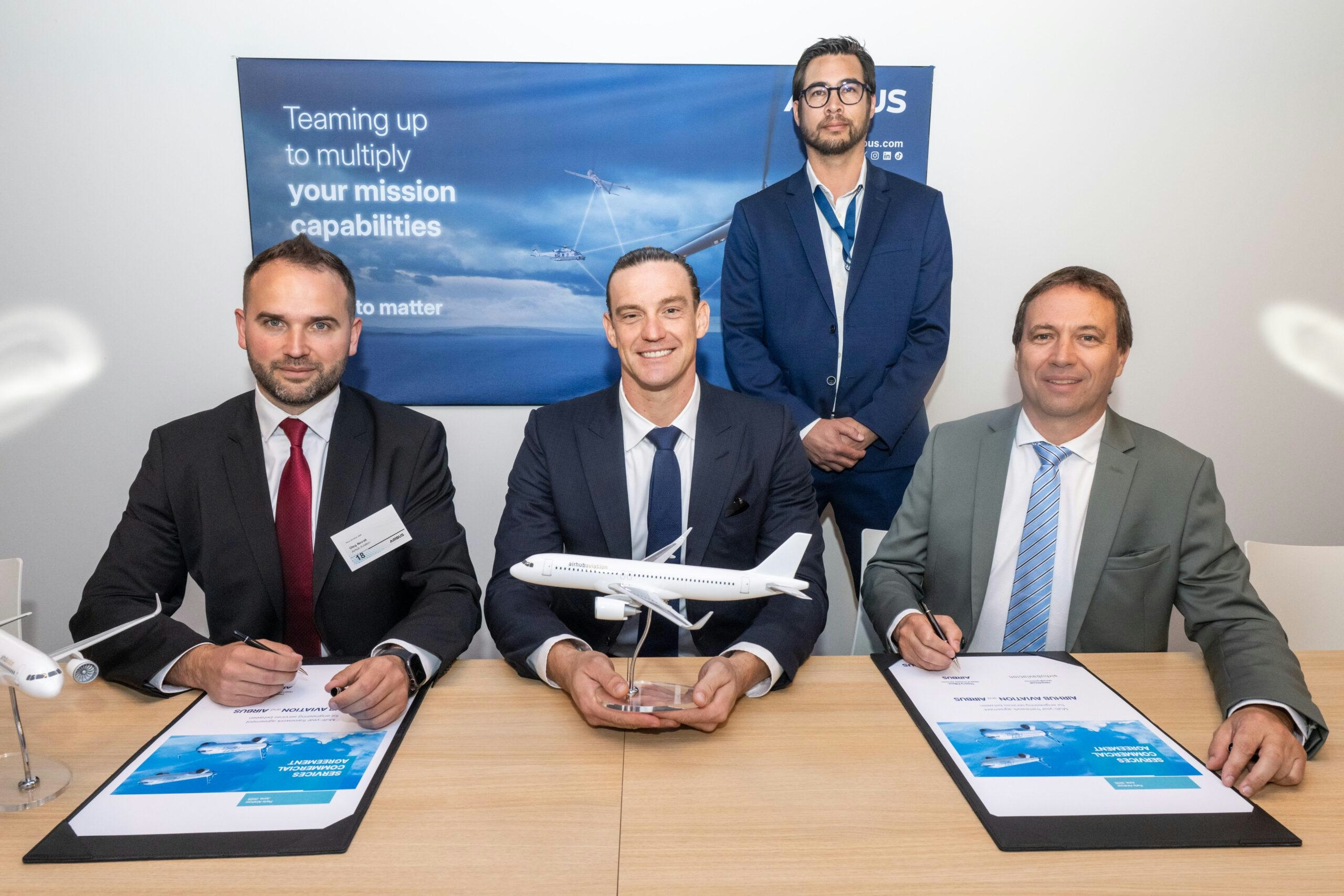AeroGenie — Your Intelligent Copilot.
Trending
Categories
Airbus Signs New Agreement with Chinese Partner Amid Reports of Large Order

Airbus Strengthens Production Partnership in China Ahead of Key Summit
Airbus has formalized a new cooperation agreement with its Chinese partner, AVIC Xi’an Aircraft Industry Group, to expand the local production of its A321 aircraft in China. Announced just days before a pivotal China-Europe leaders’ summit in Beijing, the agreement will enable Airbus to commence fuselage equipping—the installation of critical systems on the front and rear sections of the aircraft—at its Tianjin facility. This development marks a significant step in Airbus’s ongoing efforts to deepen its localisation strategy within the world’s second-largest aviation market.
Expanding Local Production and Strategic Collaboration
Building on an existing partnership focused on the A320, the new deal broadens the scope of collaboration to include the A321 model. George Xu, CEO of Airbus China, highlighted the importance of this expansion, describing it as a vital measure to implement Airbus’s localisation strategy continuously. Xu further underscored the resilience and competitiveness of China’s supply chain, calling it “an indispensable part of the global aviation industry.” The first fuselage sections for the A321 arrived at the Tianjin plant earlier this month, with Airbus targeting completion of system installations—including electrical, electronic, drainage, oxygen, flight control, and hydraulic components—by October.
The timing of the agreement is particularly significant given the anticipation of a potential “mega-deal” between Airbus and Chinese airlines during the upcoming summit. Industry analysts suggest such an order could be valued in the tens of billions of dollars, reinforcing Airbus’s foothold in the Asian market where demand for single-aisle jets remains strong.
Navigating Industry Challenges Amid Intensifying Competition
Despite the promising expansion, Airbus faces a complex operating environment marked by ongoing supply chain disruptions and intensifying competition. The company must also adapt to evolving market demands as it seeks to maintain and grow its presence in Asia. The new agreement is expected to bolster investor confidence in Airbus’s growth trajectory within the region.
Competitors including Boeing and Embraer are actively responding to these market dynamics. Recent orders from ANA Holdings, spanning Airbus, Boeing, and Embraer aircraft, alongside Riyadh Air’s commitment to acquire up to 50 Airbus A350-1000s, illustrate the fierce competition as airlines worldwide pursue fleet modernization.
By deepening its partnership with Chinese manufacturers and expanding local production capabilities, Airbus is strategically positioning itself to capture a larger share of the rapidly growing Asian aviation market, even as it contends with the complexities of global supply chains and competitive pressures.

Electric Aircraft Market Outlook Through 2035

Capital A Completes Sale of Aviation Business to AirAsia X

Four Gateway Towns to Lake Clark National Park

PRM Assist Secures €500,000 in Funding

Should Travelers Pay More for Human Support When Plans Go Wrong?

InterGlobe Aviation Shares Rise 4.3% Following January Portfolio Rebalancing

Key Market Segments Shaping Airline Route Profitability Software

Locatory.com Gains Traction Among Aviation MROs and Suppliers

JetBlue Flight Makes Emergency Landing Following Engine Failure

58 Pilots Graduate from Ethiopian University
